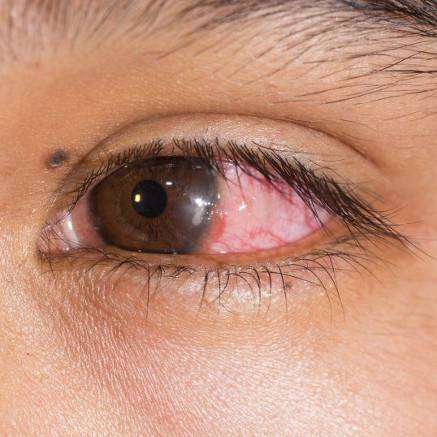Introduction:
Eye infections can be a common and uncomfortable occurrence, thus causing irritation and potential vision problems. In this comprehensive guide, we will explore the various aspects of Conjunctivitis, covering everything from their causes and symptoms to treatment options and preventive measures.
Understanding Eye Infections:
What Are Eye Infections?
Eye infections, also known as ocular Conjunctivitis, occur when harmful microorganisms such as bacteria, viruses, or fungi invade the eye’s sensitive tissues. These infections can affect various parts of the eye, including the eyelids, cornea, conjunctiva, and more.

Causes of Eye Infections:
Bacterial Infections:
Bacterial eye infections are often caused by exposure to contaminated hands, contact lenses, or cosmetic products. For instance, common bacterial Conjunctivitis include conjunctivitis (pink eye) and styes.
Viral Infections:
Viral Conjunctivitis are highly contagious and can be transmitted through close contact with an infected person or contaminated objects. Examples include viral conjunctivitis and herpes simplex virus infections.
Fungal Infections:
Fungal Conjunctivitis are less common but can be severe. They typically occur in individuals with compromised immune systems or eye injuries.
Allergic Reactions:
Allergies can lead to eye irritation and redness. While not infections in the traditional sense, allergic reactions can mimic the symptoms of Conjunctivitis.
Recognizing the Symptoms:
Common Symptoms
- Redness in the eyes
- Eye discharge (clear, yellow, or green)
- Itchy or burning sensation
- Sensitivity to light
- Blurred vision
- Swollen eyelids
Seeking Medical Attention:
If you experience any of the symptoms mentioned above, it’s essential to consult an eye care professional promptly. They can diagnose the specific type of eye infection and recommend appropriate treatment.
Treatment Options:
Prescription Medications:
Antibiotics:
Bacterial eye infections are often treated with antibiotic eye drops or ointments to eliminate the underlying Conjunctivitis
Antiviral Medications:
In cases of viral Conjunctivitis, antiviral medications may be prescribed to reduce symptoms and prevent the virus from spreading.
Antifungal Medications:
Fungal eye infections typically require antifungal medications to eradicate the fungi responsible for the Conjunctivitis.
Home Remedies:
Warm Compress:
A warm compress can provide relief from discomfort and help reduce swelling associated with Conjunctivitis.
Lubricating Eye Drops:
Artificial tears can soothe dryness and irritation caused by Conjunctivitis.
Prevention Strategies:
Good Hygiene Practices:
- Wash your hands frequently, especially before touching your eyes.
- Avoid sharing personal items like towels or eye makeup in order to minimize the risk of spreading Conjunctivitis.
- Follow proper contact lens hygiene, which involves cleaning and disinfecting them regularly.
Avoiding Touching Your Face:
Resist the urge to rub your eyes, as doing so can introduce harmful bacteria and viruses.
Regular Eye Exams:
Schedule routine eye check-ups in order to detect any eye conditions or Conjunctivitis early.
Conclusion:
Eye infections can be painful and inconvenient, but with prompt diagnosis and appropriate treatment, most can be effectively managed. By adopting good hygiene practices and taking preventive measures, you can reduce the risk of Conjunctivitis and maintain healthy eyesight.
FAQs (Frequently Asked Questions):
1. Are Conjunctivitis contagious?
Yes, many eye infections, especially viral and bacterial ones, are contagious. It’s essential to take precautions to prevent spreading the infection to others.
2. Can I wear contact lenses with an eye infection?
It is not advisable to wear contact lenses when you have an eye infection, as this can exacerbate the condition and potentially lead to complications.
3. How can I relieve the discomfort of an eye infection at home?
You can use a warm compress and lubricating eye drops to alleviate discomfort. However, it’s crucial to consult a healthcare professional for proper treatment.
4. Are children more susceptible to Conjunctivitis?
Children are often more vulnerable to Conjunctivitis due to their developing immune systems and increased exposure to germs. Proper hygiene is essential for preventing infections in children.
5. Can I prevent Conjunctivitis while wearing makeup?
To prevent Conjunctivitis when using makeup, make sure to regularly clean your brushes and applicators, avoid sharing makeup, and discard old or expired products.












